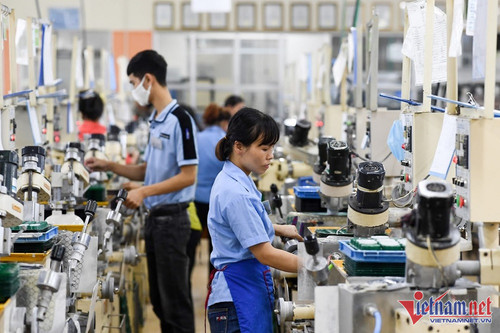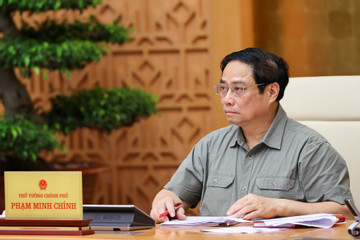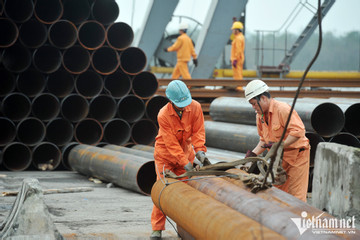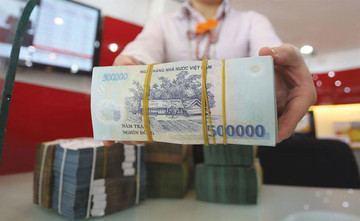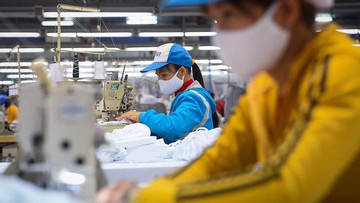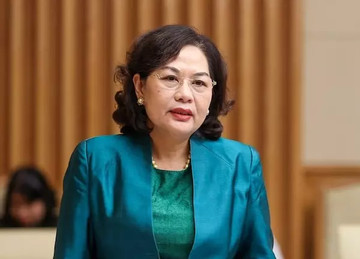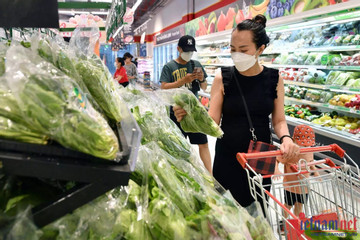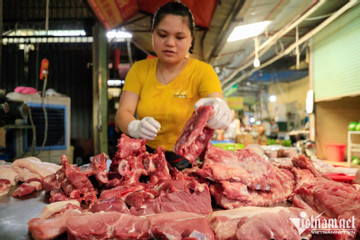- © Copyright of Vietnamnet Global.
- Tel: 024 3772 7988 Fax: (024) 37722734
- Email: evnn@vietnamnet.vn
inflation rate
Update news inflation rate
2% interest rate subsidy package remains inaccessible, say enterprises
Many enterprises complain that they cannot access the 2 percent interest rate subsidy package, and banks are not keen on the program because of complicated procedures.
Prime Minister tells SBV to raise deposits, stabilize lending interest rates
Prime Minister Pham Minh Chinh has asked the State Bank of Vietnam (SBV) to consider raising the deposit interest rate ceiling, but to stabilize lending interest rates.
Conditions for Vietnam to become high-income country by 2045
GDP (gross domestic product) growth has slowed down. The risk of falling to the middle-income trap and economically lagging behind exist.
Ceiling credit growth rate needs to be removed: economist
According to former deputy director of the Banking Strategy Institute Pham Xuan Hoe, while demand for capital is very high, the credit growth limit has been controlled too strictly, which has put a brake on the economic recovery process.
Liquidity is biggest risk for enterprises: expert
The State Bank of Vietnam (SBV) has recently begun mentioning credit loosening. VietNamNet spoke with Pham Xuan Hoe, former deputy director of the SBV’s Banking Strategy Institute, about the issue.
CPI method of calculation is correct: economist
“Someone told me they had a feeling that the CPI is not correct. I asked them on what grounds. Scientifically, that cannot be proven,” said economist Vo Tri Thanh.
Vietnamese economy forecast to grow 7.5% in 2022
The nation’s economic recovery has accelerated over the last six months on the back of a resilient manufacturing sector coupled with a robust rebound in services, according to a World Bank (WB) economic update for Vietnam released on August 8.
Curbing inflation: the optimal goal of monetary and fiscal policies
Monetary and fiscal policies have been tightened to fight inflation in Vietnam (though it is among the lowest in the world), instead of aiming to recover production and boost growth, which is needed after several years of pandemic.
Petrol prices fall but savings not passed on to goods
Experts gathered in Hanoi on August 4 to discuss how to deal with the continuing high prices of commodities in Vietnam despite petrol prices being reduced.
Feed prices rise, but pig prices fall as farmers incur losses
The price of live hogs has dropped dramatically, causing losses to farmers. Meanwhile, consumers still are buying pork at high prices and the profit is going to merchants’ pockets.
High inflation is biggest risk for Vietnam’s economy: officials
Statistics show a stable situation now, but there are warning signs that if Vietnam cannot curb inflation, the situation will be insecure.
Though petrol prices have fallen, food prices have remained high
Contrary to all predictions, food prices have remained high despite the sharp fall of gasoline prices.
Struggling businesses sell to foreign investors
The sharp increases in material prices in H1 and the small support packages to businesses have put pressure on companies.
Food prices still high despite petrol price cuts
From its peak, petrol prices have fallen by 20.7-25.6 percent to the level of five months ago. However, food and foodstuff prices have not dropped.
Food, consumer goods decline sluggishly
Although gasoline prices have dropped sharply, many products have merely decreased slightly or kept their old prices.
Clear and effective policies help mitigate external shock impact
Despite the global economy enduring an array of unpredictable fluctuations, the timely introduction and effective implementation of Government policies have contributed to Vietnam avoiding external shocks whilst also promoting growth.
Agencies propose tax, fee reductions as prices escalate
The price increases of crude oil and input materials of many industries have led to increases in finished products, putting a burden on businesses and people.
Enterprises minimize costs to support consumers amid price hikes
It was recorded that, on the last two days of the week in Ho Chi Minh City, the number of people flocking to traditional markets, supermarkets, and trade centers increased sharply.
Economy bounces back faster than expected
Vietnam’s economy continued to expand in the second quarter of the year, with gross domestic product (GDP) growing 7.7% year on year, the highest quarterly growth rate in 11 years.
Why do local interest rates remain unchanged amid inflation?
SBV will continue to keep interest rates unchanged in order to sustain macro-economic stability and control inflation, in contrast with the ongoing trend adopted by central banks of many countries worldwide, according to economic experts.
